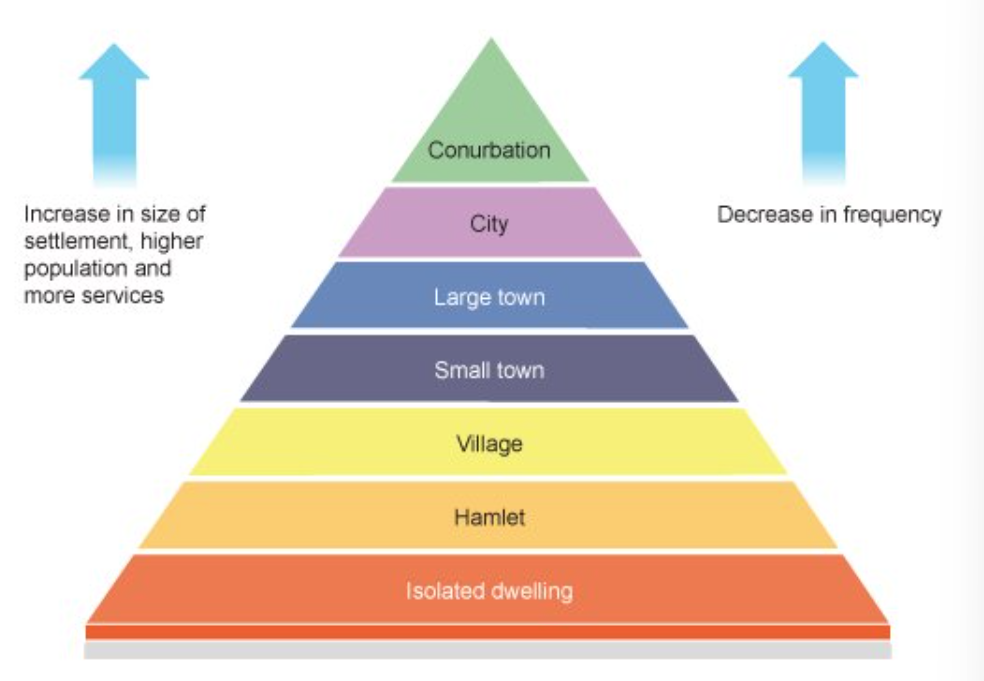2.2.4 - global urbanisation
1/17
There's no tags or description
Looks like no tags are added yet.
Name | Mastery | Learn | Test | Matching | Spaced |
|---|
No study sessions yet.
18 Terms
What % of the worlds population lived in urban areas
more than 50% in 2007
how much does the number of urban dwellers rise every day
an estimated 180,000 every day
By 2050, how much of the worlds population could live in towns an cities
75%
what is urbanisation
an increase in the amount of people living in urban areas, such as towns or cities, compared with those living in rural areas, such as the countryside.
What are the causes of urbanisation
because of migration from rural to urban areas,
or a natural increase if there is a high birth rate and low death rate within these urban areas (internal growth).
What is a settlement hierarchy
with an increase in size of settlement, there is a higher population and more services, however there is also a decrease in frequency
Describe the contents of the settlement hierarchy
(just the triangle)

how do settlements move up through the hierarchy
as more people live in them
What is a conurbation
A conurbation is made up of a major city and its suburban areas
It houses tens of millions of people and performs a large number of functions.
These can then merge with other cities to form sprawling urban belts
where to cities locate and why
they are found along major river valleys which allowed residents to settle and feed themselves.
What is a more recent stimuli for growth
industrial development and raw materials
global outsourcing
why is water an important factor for settlements
It provides
Communication
opportunities for trade
water supply
waste disposal
How many people does a megacity have
A megacity has a population over ten million.
How much of the population do megacities hold?
only 5%
Positive impacts of megacities
Megacities may be more stable, and offer better public services, but internal divisions need to be tackled.
Solar energy generation, recycled materials and careful integration of technology could help these cities become more efficient.
Greater financial stability often gives couples the confidence to raise larger families, increasing the rate of growth still further, even without a rapid rate of immigration.
Many urban areas also get denser as they grow. This could potentially bring environmental benefits in the longer term, as people are concentrated in a small area rather than causing urban sprawl. It is important to plan for growth, or the urban form that develops in the early stages of a city's development tends to persist for decades.
negative impacts of megacities
Megacities are major global risk areas.
Due to highest concentration of people and extreme dynamics, they are particularly prone to supply crises, social disorganisation, political conflicts and natural disasters. Their vulnerability can be high
What is a world city (also known as a global or alpha city)?
A world city (also known as a global or alpha city) is one which is considered city to be an important hub in the global economic system.
Characteristics of world cities
Headquarters of multinational companies based in the city
A centre for innovation in business
A centre for media and communications: broadcasting and technology
A major centre for manufacturing
Regional importance compared with other cities
Highly rated universities, often specialising in research, which links to a high quality of healthcare provision
Cultural opportunities including opera and ballet as well as cinema and live music